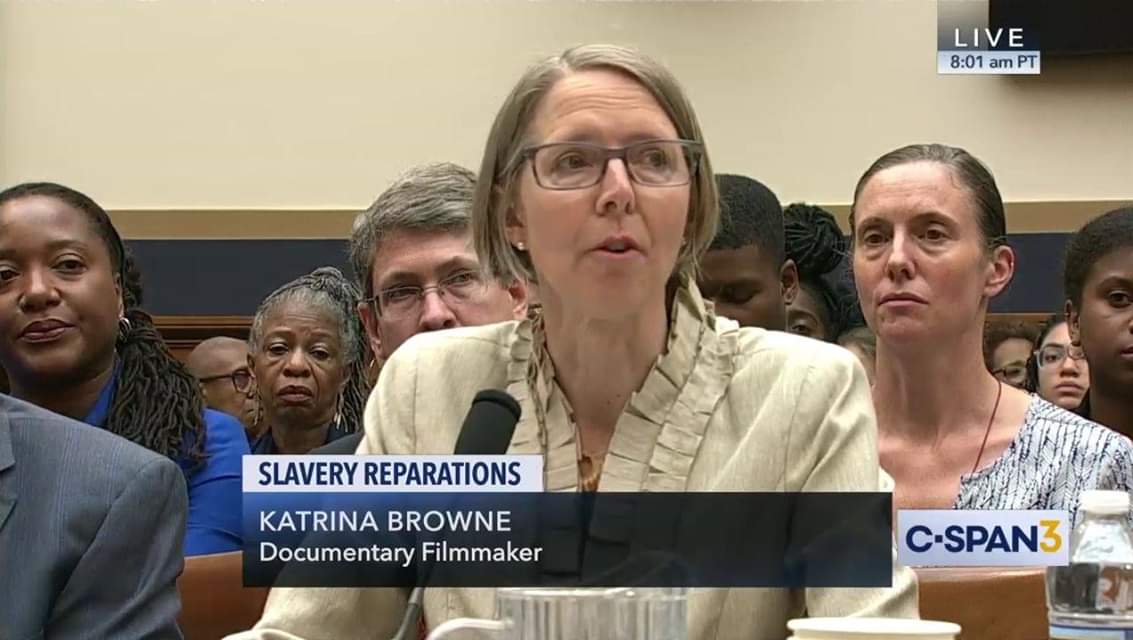Wed 25 Jan, 2023
U.S. Congress to weigh reparations for slavery and racism
Comment now Filed under: RemediesTags: H.R. 40, History, Legislation, Reparations for slavery, U.S. Congress
The uncomfortable truth is that the United States owes its position as the most powerful nation in the world to its slave-owning past.
Rep. Jackson Lee
The 118th U.S. Congress convened earlier this month, and legislation to establish a commission to study reparations for slavery and racism has been re-introduced in the House and Senate.
In the House, Representative Sheila Jackson Lee (D-Tex.) re-introduced H.R. 40, the bill which was first introduced by the late Rep. John Conyers (D-Mich.) in 1989 and which has been introduced in every Congress since that time.
H.R. 40 would acknowledge our nation’s unresolved history of slavery and racial discrimination and establish a commission to study its impact, consider a national apology, and suggest remedies. As Rep. Jackson Lee noted in her remarks introducing H.R. 40, it is “a holistic bill” which “establishes a commission to examine the moral and social implications of slavery,” and not just its economic consequences.
Meanwhile, Senate Cory Booker (D-N.J.) has re-introduced the Senate version, S. 40, of this legislation, as he did in each of the two previous Congresses.
Though some have tried to deflect the importance of these conversations by focusing on individual monetary compensation, the real issue is whether and how this nation can come to grips with the legacy of slavery that still infects current society.
Rep. Jackson Lee
Rep. Conyers first introduced H.R. 40 in the 101st Congress, after Congress arranged for a national apology and more than $1.6 billion in reparations to Japanese-Americans sent to U.S. concentration camps during World War II and their descendants. He then reintroduced the bill in every new Congress until his resignation from Congress in 2017. Rep. Jackson Lee assumed first sponsorship over H.R. 40 at that time, and has since re-introduced the legislation with each new Congress. At this writing, the latest version has 75 co-sponsors in the House and its companion in the Senate has 21 co-sponsors.
It is good for the soul of a person, a people, and of a nation to set things right.
Katrina Browne, testifying before the House Committee on the Judiciary
 In 2019, H.R. 40 received its first hearing, which I was privileged to attend in support of Katrina Browne’s testimony. It will be interesting to see what, if anything, happens with H.R. 40 in the this Congress. Republicans have taken control of the House and have consistently opposed efforts like this to acknowledge and atone for slavery and racial discrimination. On the other hand, reparations efforts have picked up steam in many parts of the country in recent years.
In 2019, H.R. 40 received its first hearing, which I was privileged to attend in support of Katrina Browne’s testimony. It will be interesting to see what, if anything, happens with H.R. 40 in the this Congress. Republicans have taken control of the House and have consistently opposed efforts like this to acknowledge and atone for slavery and racial discrimination. On the other hand, reparations efforts have picked up steam in many parts of the country in recent years.
H.R. 40 has been referred to the House Committee on the Judiciary for further consideration, while S. 40 has been sent to the Senate Committee on the Judiciary.